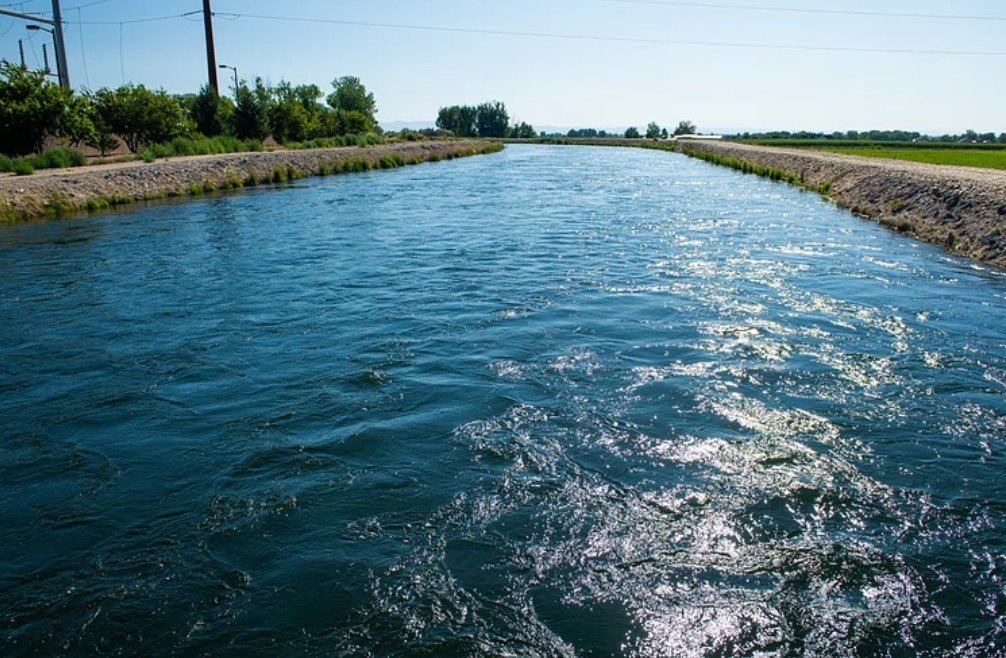Farmers in the Goulburn-Murray region are being urged to keep their livestock off channel banks to prevent damage and improve water delivery. Livestock have been found to cause significant structural damage to the banks of irrigation channels, leading to leaks and reduced flow rates. This not only impacts water delivery to downstream irrigators but also poses risks to water quality due to contamination from animal waste. Goulburn-Murray Water (G-MW) is calling on farmers to take proactive measures to protect these vital water infrastructure assets.

Preventing Structural Damage
Livestock accessing channel banks can cause severe structural damage. When animals trample the banks, they create paths and holes that can lead to erosion and leaks. This damage compromises the integrity of the channels, making it difficult to maintain consistent water flow. The resulting leaks can lead to water wastage and increased maintenance costs for G-MW. Farmers are encouraged to fence off channels to prevent livestock from accessing these areas and causing damage.
Warren Blyth, General Manager of Water Delivery Services at G-MW, emphasized the importance of keeping livestock away from channel banks. He noted that damaged channels could significantly impact the service provided to downstream irrigators and be expensive to repair. Blyth highlighted the various channel refurbishments completed in recent years to improve water delivery and stressed the need for farmers to play their part in maintaining these improvements.
The responsibility for preventing damage to channel banks lies with the landholders. Under section 288 of the Water Act 1989, G-MW has the authority to take action against anyone who damages or interferes with its works or property. By keeping livestock off channel banks, farmers can help ensure the longevity and efficiency of the irrigation infrastructure, benefiting the entire agricultural community.
Protecting Water Quality
In addition to structural damage, livestock on channel banks can negatively impact water quality. Animal waste can contaminate the water, introducing pathogens, viruses, and parasites that pose health risks to both humans and animals. Deceased livestock falling into channels can further exacerbate these issues, leading to waterborne diseases. Ensuring that livestock do not access channel banks is crucial for maintaining clean and safe water supplies.
G-MW has been proactive in addressing water quality concerns by implementing measures to prevent contamination. These measures include regular monitoring of water quality and working with farmers to develop best practices for managing livestock near water sources. By collaborating with farmers, G-MW aims to create a sustainable and safe water management system that supports both agricultural productivity and public health.
Farmers are encouraged to adopt practices that minimize the risk of water contamination. This includes providing alternative water sources for livestock, such as troughs or designated drinking areas away from channels. By taking these steps, farmers can help protect water quality and ensure that their operations do not negatively impact the broader community.
Collaborative Efforts for Sustainable Water Management
The issue of livestock on channel banks highlights the need for collaborative efforts between G-MW and the farming community. Effective water management requires the cooperation of all stakeholders to ensure that the infrastructure remains functional and efficient. G-MW’s Customer Experience Team is available to provide support and guidance to farmers on best practices for managing livestock and protecting water infrastructure.
Education and awareness are key components of this collaborative approach. G-MW is committed to raising awareness about the importance of keeping livestock off channel banks and the potential consequences of failing to do so. By providing information and resources, G-MW aims to empower farmers to take proactive measures in protecting water infrastructure.
In conclusion, keeping livestock off channel banks is essential for preventing structural damage, protecting water quality, and ensuring sustainable water management. G-MW’s efforts to engage with farmers and promote best practices are crucial in achieving these goals. By working together, the farming community and G-MW can ensure the longevity and efficiency of the irrigation system, benefiting all stakeholders involved.








